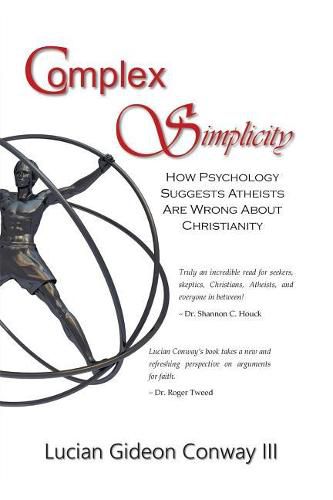Readings Newsletter
Become a Readings Member to make your shopping experience even easier.
Sign in or sign up for free!
You’re not far away from qualifying for FREE standard shipping within Australia
You’ve qualified for FREE standard shipping within Australia
The cart is loading…






In Complex Simplicity, prominent psychology researcher Dr. Lucian Gideon Conway III addresses the modern atheist attack on the psychological effectiveness of the Christian religion. As an expert in the science of cognitive complexity, Dr. Conway uses scientific research and personal narratives to argue that Christianity is an effective guide for reconciling the many complexities built into the human psyche. Directly contradicting what many modern atheists believe, he shows that, in approaching human psychology from a complex perspective, Christianity meets our complex needs with complex solutions. To Christian believers, he offers psychological reasons to believe their faith yields positive benefits. To skeptics, he offers a challenge to the growing cultural belief that Christianity is both simple-minded and ineffective. Complex Simplicity is important reading for anyone curious about the intersection of Christian teaching and human psychology.
$9.00 standard shipping within Australia
FREE standard shipping within Australia for orders over $100.00
Express & International shipping calculated at checkout
In Complex Simplicity, prominent psychology researcher Dr. Lucian Gideon Conway III addresses the modern atheist attack on the psychological effectiveness of the Christian religion. As an expert in the science of cognitive complexity, Dr. Conway uses scientific research and personal narratives to argue that Christianity is an effective guide for reconciling the many complexities built into the human psyche. Directly contradicting what many modern atheists believe, he shows that, in approaching human psychology from a complex perspective, Christianity meets our complex needs with complex solutions. To Christian believers, he offers psychological reasons to believe their faith yields positive benefits. To skeptics, he offers a challenge to the growing cultural belief that Christianity is both simple-minded and ineffective. Complex Simplicity is important reading for anyone curious about the intersection of Christian teaching and human psychology.